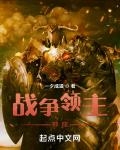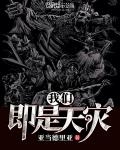Volume 1 Feathering Chapter 25: Dwarf Stump
Although the greenskin hunter tried to dodge, he was soon shot dead by Donna. The dwarf Stump, the spearman Zhou Miyin, and another dwarf warrior who was suspected to be a level 1 cooperated with each other and quickly killed the Squig beast.
Although its big teeth showed that its attack power was definitely not low, its opponent didn't give it any chance at all. The two dwarves protected it tightly with two shields, and the spearman Zhou Miyin just kept stabbing it.
But the Squig beast was surprisingly stupid. Even with blood all over its body, it just kept rushing forward, so it died even faster than Levi had imagined.
Even after it died, Levi looked at the team panel and saw that the health of the stump and the dwarf warrior were still above 60% to 70%.
This is certainly because dwarves are naturally thick-blooded, but it also shows how quickly they end the battle.
Of course, the main force is the spearman Zhou Miyin. Although there is a weapon in the dwarf's tree stump, it is rusty and looks like it has no blade. There is no hope that it can cause any damage.
Soon the second greenskin was also killed instantly by a volley of fire from Donna and the half-elf hunters. Seeing that there were fewer and fewer friendly forces left, the morale of the goblins plummeted and they were obviously beginning to waver. The two goblins that were left at the end even sneaked away.
Levi was not surprised at all. He had known from many battles that the goblins were so timid. They would either crush the enemy with numbers or attack together behind other stronger monsters.
When they are in equal numbers, they hardly dare to initiate an attack, and once the situation becomes unfavorable, they will run away very quickly.
Morale is a hidden attribute. It is not very evident in Levi's subordinates, but it is fully demonstrated in these timid goblins.
The greenskin, who was still entangled by the small wind element, began to want to escape when he saw this, but how could Levi let it go in this situation?
Of course the greenskin was outnumbered and killed in just a few breaths when he was surrounded by everyone.
At this time, the remaining goblins seemed to be liberated and fled in all directions.
As soon as he stretched out his hand, the magical pet tree frog that looked like an emerald green hue slid down his trouser leg and jumped into his pocket in a few seconds.
Although its attack power is very weak, its small size is also an advantage . It can launch sneak attacks in chaos, and it can also carry poison when attacking. Therefore, every time Levi releases it, he will gain something. After all, experience points are gained based on combat contributions rather than kills.
In addition to ordering the small wind elements to pursue, everyone else began to clean up the battlefield under Levi's orders. The goblins were really poor and didn't have even a copper coin except for experience points, so it was not worth wasting energy to hunt them down.
The dwarf Stump did have some ideas, but looking at his short legs, he could only sigh heavily. Chasing and killing was probably not something that a dwarf could do.
And it might not be possible in the future, because he did not see any cavalry units in the dwarf's novice village, so he went out so early to explore the surrounding area.
Soon the small wind element returned after killing the enemy, and Levi also received a system prompt. This was another mediocre victory.
He didn't take it seriously. Although they didn't suffer any casualties this time, their opponents were too weak. Except for the greenskin hunter who was level 2, the squig and the two ordinary greenskins called greenskin boys who were level 1, the rest of the goblins were all level 0.
Our side has more than single-digit number of level 1 troops, and our strength is completely overwhelming. Even if the victory is beautiful, the system sees it as pure bullying of the weak.
The dwarf Stump looked at the half-elves around him who were basically not injured with envy, and then looked at the small wind elemental who was roaring back, and said with emotion: "Brother, you are really strong. A random summoned creature can kill so many goblins, but why do I hear that many mages are crying weak?"
Levi couldn't help but smile: "You probably didn't read the analysis of professions and races on the forum yesterday, especially the one about mages?"
Stump shook his head: "We dwarves don't have mages, why should I look at it?"
Levi nodded. The advantages and weaknesses of the dwarves were also very obvious. Apart from being slow runners and being completely unsuitable for professions like thieves, the fact that they had no decent magicians was also one of the reasons.
It is said that this is because dwarves are naturally resistant to magic, so it is difficult for them to sense magical elements and control them.
"Just like you dwarves, the advantage of mages is that they can cast many types of magic to deal with a variety of different encounters, but their weaknesses are also obvious."
Although the time is short, the basic information has been counted, and the initial life and mana corresponding to each point of physical strength of each profession have been counted.
Among them, warriors and paladins have the highest scores, both at 10; priests, monks, and druids have 8 scores; rogues, rangers, shamans, and bards have 6 scores; and as for mages and warlocks, the two brothers in distress, they have the lowest scores at 4.
From the above, we can see that even if both have the same overall quality points, the warrior's health points are more than twice that of the mage. This is called career adjustment.
Likewise, the magic points corresponding to no intelligence will also be different, and the various professions are not completely balanced. The priest has high magic points in both, while the rogue and ranger have low magic points in both.
Therefore, a large number of mages on the forum are crying about being weak, saying that early mages are really useless, their spell damage is ridiculously low, their health points are also ridiculously low, they dare not fight in close combat at all, and they have to hide at the back in every battle for fear of being discovered by the enemy.
Currently, the only profession with the same fate as him is the Warlock, but their experiences are only similar on the surface.
If a mage acquires new magic through his own learning, then a warlock taps into the inhuman blood in his own body and gains power from the inheritance.
Yes, the bloodline of all warlocks is not pure, and their ancestors may have had connections with creatures , which gives them powerful potential.
Therefore, warlocks can choose two types of level 0 magic and one bloodline talent power when they are at level 0. In addition, the race they choose when creating the character may also have talents. This actually leads to the fact that level 0 warlocks are far superior to level 0 mages in terms of combat power and survivability.
If you are bolder and luckier, you may randomly get a better magic when creating your character like Levi, and you will take off right from the start.
Of course, because the Warlock started off so strong, many people seriously doubted that there might be any drawbacks in the later stages.
However, the most controversial person is not the mage, but the priest.
Generally in other games, priests are the nurses hiding in the back, but in this game, their physical adjustments are second only to warriors and paladins, and their initial equipment is a shield in one hand and a warhammer in the other, which is really complaining.
The paladin who is somewhat similar to him has extremely high health and is proficient in both physical and magical skills, but the only difference is that the priest tends to be more spell-oriented, while the paladin is more inclined to be a warrior.
Paladins can use all simple and military weapons, all types of armor (light, medium, heavy) and all shields except tower shields in the early stages. Once equipped, they will have additional bonuses and can use the Evil Breaker which has additional lethality to evil creatures, which makes their initial combat effectiveness very strong.
Of course, the game still has a certain degree of balance. At least until now, there are no particularly powerful professions. The more you get, the more you have to pay.
Or what about the priests and paladins? According to the game's settings, priests must pray for several hours every day to ask the gods they believe in to grant them strength, otherwise they will lose all spellcasting abilities the next day.
Yes, all priests have their own gods. According to the setting of the game, if the power of the wizard comes from their own wisdom, then the spells of the priests often come from the gift of gods. To be more precise, they should be called divine spells.
Basically, each major race and camp has its own gods, including human gods, elven gods, dwarf gods and so on. The style even looks very similar to the ancient Chinese Zhendan Dynasty, which also had a large family of Eastern dragon gods. The Zhendan people were therefore called the people of the dragon.
Moreover, the priest's camp must be roughly consistent with the god he believes in. There can be a certain degree of deviation, but it must not be completely opposite.
Similarly, a god will accept believers from multiple camps at the same time.
For example, if one believes in the neutral evil camp, he may accept believers from the three camps of neutral evil, lawful evil and chaotic evil at the same time, but it is almost impossible for him to accept any believers from the good camp.
Although paladins do not need to pray, they are subject to more and stronger constraints. First of all, their camp must always be maintained in the lawful good camp. They can only adventure with characters of the good and neutral camps, and must never knowingly associate with evil. They can only hire lawful good and lawful neutral soldiers as their subordinates.
Not only must they themselves strictly abide by various codes of conduct, but their teammates must also abide by them. He cannot turn a blind eye to them. At the same time, he cannot have any subordinates such as thieves, assassins, or pirates under his command.
As for undead wizards and the like, don't even think about it. They can't even actively attack any non-evil natives or God-chosen heroes who don't show hostility towards them.
In other words, unless the opponent is an evil creature or a red name, they will be subject to severe restrictions even in PK.
Once they commit a serious violation, they will immediately lose all their extraordinary powers and must perform difficult atonement tasks in order to have a chance to regain these powers.
So someone joked on the forum that if one could always be a qualified paladin, he would either be a true saint or a hypocrite who had completely deceived himself and the gods.
In a sense, such a hypocrite is no different from a real gentleman.
As for the one with the least presence at the moment, it might be the thief, with little health and thin skin, his attacks are like tickling, and his skills are just gadgets like removing traps and unlocking locks, which are completely useless in frontal combat.
Then comes his fellow sufferer, the Ranger, but the Ranger uses bows and arrows and is a ranged unit.
In addition, due to racial differences, there are also various advantages and disadvantages.
Naturally blind, cavemen have acquired infrared sensing abilities, which are a great advantage against enemies that can sneak and hide, but they are severely weakened if suddenly exposed to bright light.
The Harpy can fly at level 0, but when it lands on the ground, its combat effectiveness is very weak.
The famous Undead are best at using massive cannon fodder to overwhelm the enemy. The Sea of Skeletons is a unique way of doing things, and it consumes less leadership. Necromancers also have skills that can further reduce the consumption of leadership.
But whether it is fire, thunder or ordinary sunlight, they can all cause massive damage to these undead creatures, not to mention the priest's light spells, which are their natural nemesis.
Ogres are naturally very powerful, and can directly use the corpses of enemies or friendly forces to make food on the battlefield, greatly saving the cost of supplies. However, the price of being a cannibal is that they will be hostile to almost all civilized and orderly intelligent races...
Dwarves are naturally resistant to magic, and have additional bonuses in mining and forging, but they have short arms and legs, and don't seem to have any meaningful cavalry, nor do they have mages.
There are many more examples like this
In comparison, the high elves chosen by Levi seem to be very good. Except that they cannot recruit soldiers of their own race in the early stage and can only use human militia, they have almost no other shortcomings.
Of course, judging from the information he has obtained from the forum, perhaps humans are the only ones who are truly without flaws.
Although humans don't have any exaggerated bonuses, they don't have too many debuffs either. Instead, they have two racial talents that seem inconspicuous but may have great potential.
Good at learning. The experience points required to level up are reduced by 3%.
Humility, 3% more effective when gaining reputation and friendship.






